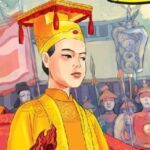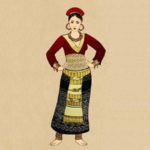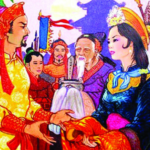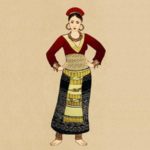King Ly Hue Tong (1194-1226), the eighth emperor of the Ly Dynasty, reigned from 1210 to 1224. His birth name was Ly Sam or Ly Hao Sam, and he was born in the capital city of Thang Long, Dai Viet.
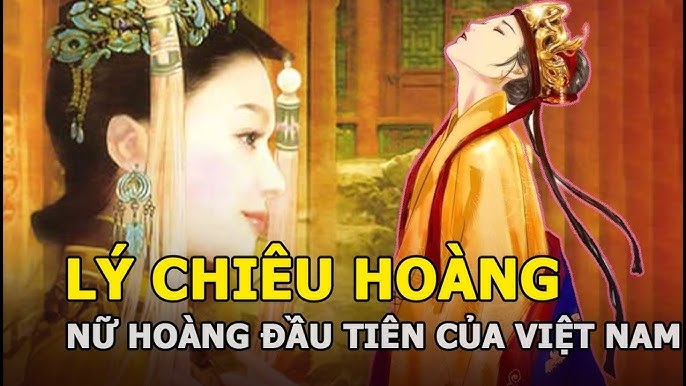
Ly Chieu Hoang, or Empress Chieu Hoang, was the female monarch of Dai Viet and the last emperor of the Ly Dynasty.
Ly Hue Tong’s life was filled with sorrow and misfortune. The Dai Viet Su Ky Toan Thu chronicles describe his reign during a tumultuous era: “The king encountered a chaotic period, with bandits rampant everywhere. He suffered from a severe illness and failed to ensure the continuity of the Ly Dynasty by having a male heir.”
Born into a time of disorder, Ly Hue Tong, even as a crown prince, had to flee for his life multiple times due to the infighting within the court and the power struggles among regional warlords. On top of that, he witnessed conflicts within his family between his mother, Queen Dam, and his wife, Tran Thi Dung.
Throughout his life, the king was plagued by poor health and was often bedridden. In late 1216, he suffered a severe illness, and despite the efforts of the best physicians in the land, they could not cure him.
The reins of power were handed over to Tran Tu Khanh, who successfully suppressed the warlords Du Bi, Ly Bat, and Ha Cao. Following Tran Tu Khanh’s death in 1223, his power passed to his cousin, Tran Thu Do.
Ly Hue Tong did not have a son, and under pressure from Tran Thu Do, he was forced to abdicate in favor of his eight-year-old daughter, Princess Chieu Thanh, who became Ly Chieu Hoang.
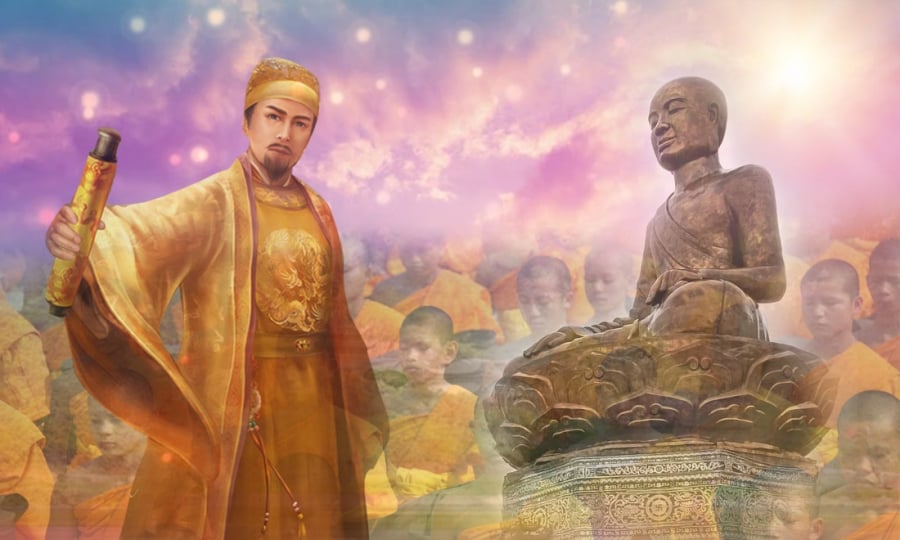
Ly Hue Tong later became a monk at the Bat Thap Pagoda, taking the dharma name Hue Quang Dai Su. He was the first monarch in the history of Vietnamese feudalism to renounce the world and become a monk. He passed away in 1226 at the age of 33.
In 1225, Ly Chieu Hoang, under the arrangement of Tran Thu Do, ceded the throne to Tran Canh (Tran Thai Tong), marking the end of the Ly Dynasty’s over 200-year rule over Dai Viet.
According to the Dai Viet Su Ky Toan Thu, a later scholar interpreted the king’s name, Sam, to mean ‘the sun setting behind the mountain’ in Chinese characters. Thus, it was foretold that with Ly Hao Sam, the sun of the Ly Dynasty would set.
The Unfortunate Princess of Vietnam: A Tale of a Child Bride and Her Unraveling Destiny
In a twist of fate that defied conventional moral standards, a married Vietnamese princess, already a mother and expecting another child, was forced into an unusual union with her brother-in-law. This bizarre incident, a blatant transgression of ethical norms, was nonetheless documented in historical annals, leaving an indelible mark on the annals of Vietnamese history.
A Glimpse into the Evolution of Vietnamese Women’s Traditional Attire
The rich cultural heritage of Vietnam is reflected in the diverse and vibrant array of traditional women’s attire. Join Bach Hoa Xanh on a journey through time as we explore the evolution of Vietnamese women’s fashion through the ages. From the elegant ao dai to the vibrant silk tunics, each piece tells a story of tradition, craftsmanship, and the unique beauty of Vietnamese culture. Stay tuned as we unravel the sartorial secrets of Vietnam’s women, offering a glimpse into the past and a celebration of the country’s rich heritage.
























